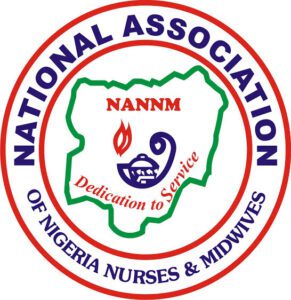


Meningitis plague hits Yobe, kill 20 students
A viral disease, Meningitis, has hit Yobe state leaving at least 20 students dead.
This was disclosed by the State’s Commissioner for Basic and Secondary Education, Dr. Muhammad Sani Idris, who confirmed the outbreak, saying 20 students were killed by the disease suspected to be meningitis.
The students were boarding public schools in Potiskum, Fika, and Fune local government areas of Yobe State.
It was learnt that the deaths were recorded in Government Science Technical College, Government Girls Science Technical College, and Federal Government Girls College, all in Potiskum LG.
Commenting, the Commissioner said Governor Mai Mala Buni had directed the state Ministry of Education to temporarily relocate to Potiskum in response to the outbreak.
The commissioner also confirmed that several students had been admitted to Potiskum Specialist Hospital.
He said, “This disease is from God and you can’t run away from it once it comes, but we must wake up to fight this outbreak to curtail it from spreading to other areas. After this outbreak hit the Government Science Technical College Potiskum and other two secondary schools, I as Commissioner, my Permanent Secretary, and the Executive Secretary of the state’s Science Technical Board as well as the chairman of the Teaching Service Board have been relocated to Potiskum temporarily.
“I had a meeting with the principals of these three secondary schools to join hands together and fight this disease. We have parked out ambulances in all these schools for emergency cases. We also assigned three teachers to work for three hours in the classes checking the conditions of these students who are not affected.
“After three hours another three teachers will take over from them checking the health condition of these unaffected students asking them if they are not feeling fine or have new reactions in their bodies. We are doing this 24-hour service as proactive measures to ensure that we curtail this disease.
“At least 17 students have died in two secondary schools belonging to Yobe state government while one lady from the Federal Government Girls College also died as a result of this disease.
“I cannot give you the number of the affected students now because there are students who are in isolation centres in their schools. We also have some students who are currently receiving treatment in the hospital due to their health condition.
“We received a report that this disease has spread to some schools in Fika and Fune LGAs but so far we have a record of 20 students who died in both primary and secondary schools in the state after finding new cases in Gadaka and Jajere villages who are under Fika and Fune LGAs.
“His Excellency, Governor Mai Mala Buni had directed the Ministry of Health to send their medical team (doctors and technicians) to investigate the cause of this outbreak and provide drugs and other medication. We thank God they (students) are doing well, we are hoping that things will get better.”
He further emphasised the importance of ensuring the well-being of all students and finding effective remedies for those affected, stressing the establishment of temporary isolation centres in schools to provide students with first aid treatment.
“We have temporarily relocated to Potiskum until all the students are in good health. We established temporary isolation centres. Ensuring their well-being is our responsibility. So we will not relent in providing all the necessary support,” he said.
Meningitis is an inflammation (swelling) of the protective membranes covering the brain and spinal cord. A bacterial or viral infection of the fluid surrounding the brain and spinal cord usually causes the swelling. However, injuries, cancer, certain drugs, and other types of infections also can cause meningitis. It is important to know the specific cause of meningitis because the treatment differs depending on the cause.



